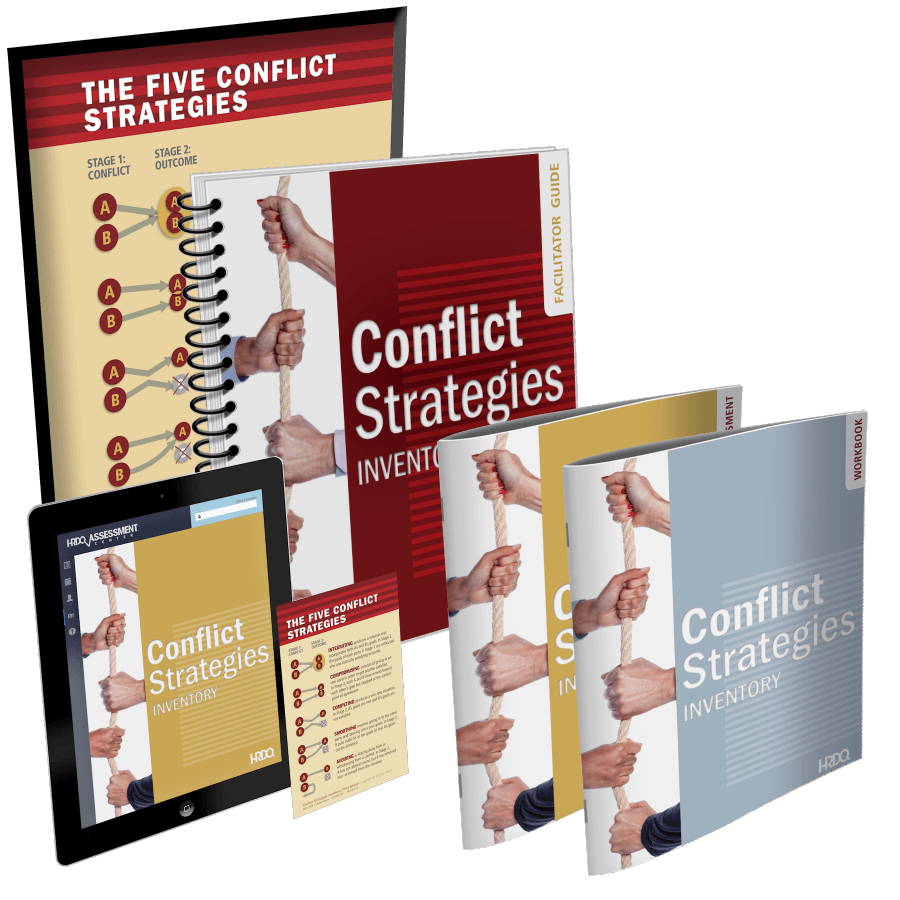Share
Confronting People: The Positive and Negative Trait Versions
Bradford R. GlaserDo you ever catch yourself thinking about how you usually deal with confrontation in your life? Whether it's an active conversation with a friend or a work meeting, how we handle these moments can change our relationships and help us grow as people.
In this post, we're discussing the problematic world of confrontation. It's pretty interesting; on the one hand, it can bring people closer, but on the other hand, it can easily push them away.
We'll study this complex behavior (which happens more commonly than we might think). I have some valuable tips, too, on how to strategy conflicts in a way that builds rather than destroys connections.
Having been through tough conversations, I know that keeping your cool isn't always easy. But having a plan for these conversations can make a big difference.
Let's get started, and maybe this conversation can make your next tough talk a bit smoother!

- Enhances conflict resolution skills
- Promotes effective communication
- Develops interpersonal strategies
Table of Contents
How Confrontation Manifests in Everyday Life
Confrontation usually gets a bad rap. It's seen as negative, but understanding its double-sided nature is valuable in our everyday lives and relationships. I see confrontation as a tool that can help us grow or spark conflict, depending on how we use it.
Let's look at how confrontation shows up in our lives to give you an example. On the positive side, dealing with issues head-on can open our eyes about personal matters and help our relationships. To provide you with an example, I've grown into meditation and mindfulness to address some inner conflicts. At first, realizing the disconnect between my thoughts and actions was tough, but it led to better self-awareness and a deeper understanding of others.
On a more personal note, bringing up an issue with a friend can be scary, but it usually strengthens our connection. It shows shared respect and a readiness to solve problems together. This kind of confrontation can turn difficult interactions into chances for growth in personal relationships or academic settings.

But staying away from confrontation isn't the right move. Dodging conflicts leaves problems hanging and can also damage relationships over time. This usually shows up as avoiding hard conversations or not tackling personal or professional concerns.
In an educational context, confrontation might mean talking about tough topics or questioning grades and feedback. While these discussions might feel awkward, they are essential for intellectual growth and understanding the subject matter.
Finally, whether confrontation leads to positive outcomes like improved self-awareness and stronger relationships or to negative outcomes like regular unresolved issues mostly depends on our strategy.
It's a good idea to get better at addressing issues directly because, more often than not, the benefits outweigh the quick discomfort.
The Value of Openness in Confrontation
When I think of confrontation, I usually think of negative outcomes. But embracing openness and honesty in these moments can turn confrontation into a useful tool for building stronger, more trusting relationships. Based on what I've seen and gone through, being transparent about our feelings and concerns in personal or professional settings is smart for creating positive confrontations.
Being open during confrontations typically means having easy, respectful conversations about issues. Take this example from a workplace: when team members talk openly about their challenges and different views on a project, it clears the air and improves the team effort. This strategy helps everyone appreciate the unique plans and skills each colleague brings.
I've seen many times where such openness has led to great outcomes. In a professional scenario, think about a team leader expressing concerns about meeting project deadlines. This kind of honesty improves problem-solving and beefs up the team's ability to address future challenges. A friend once told me that communicating openly about feelings of neglect in their relationship allowed them to change their expectations and ways of communicating, making their bond stronger.

Openness also has some extra benefits. It sparks creativity and innovation by welcoming different views and constructive feedback. It improves decisions as different opinions are thought about, giving a big perspective before making final choices. Also, getting involved in these open confrontations can pave the way for relevant personal and professional growth. Each constructive disagreement is a chance to learn, allowing people to test their ideas, expand their knowledge, and pick up new skills.
Every role I've had pushing this kind of honesty has always led to a more united and supportive environment where everyone feels important and understood.
How Can Assertiveness Help with Your Confrontations?
Assertiveness is something I've really valued, especially during tough conversations, whether at work or with friends. The goal is to share your thoughts, needs, and desires clearly while respecting those around you. I've seen that being assertive improves your confidence and self-respect. It also smooths things over with others, striking that perfect balance between being overly aggressive and too passive.
I remember practicing through role-playing exercises, which are great for sharpening those skills in a safe space. You get the freedom to goof up, learn from it, and try again without any real consequences.

So, how does assertiveness shift our strategy to confrontations? It ensures everyone feels heard, which usually defuses potential conflicts right from the start. It creates an even playing field – I've seen that the atmosphere tends to relax when people feel listened to. Being clear and direct also helps dodge those frustrating misunderstandings that can become bigger issues. Tackling ambiguities right away can save you a big headache later on.
Also, assertiveness is about finding a successful scenario. It's meaningful because it steers us away from outcomes where there are clear winners and losers. No one likes to be on the losing end.
Keeping your cool is another good idea. Controlling your emotions – especially under pressure – helps stop situations from getting heated. I've found that maintaining a calm demeanor can prevent most conflicts from flaring up. Easy acts like maintaining eye contact, holding a confident posture, and a calm tone of voice can change how your words are seen.
It's also useful to reflect on each interaction afterward. Think about what you said and how you acted, and mull over adjustments for the future. The goal is to align more closely with assertive communication principles over time.
Isn't that something we all are looking for?
Aggression and Hostility (And How to Avoid It)
When we discuss confrontations, it's essential to distinguish between positive and negative aggression. From what I've seen, knowing this difference can prevent problems from worsening and help us better manage our responses.
Negative aggression is all about actions that are supposed to hurt someone - whether it's physically, emotionally, or verbally. Usually, this comes from hostile attributional bias (HAB): the belief that somebody's actions are out to get you even when they're not meant that way. This shows that a simple comment or misunderstanding can easily start arguments or hurt feelings in the workplace. The person reacting aggressively might jump to conclusions – taking feedback as criticism or a threat. Sadly, this can cause stress, lower productivity, and sometimes even more serious things like HR problems or losing a job.

My favorite way to handle and avoid aggression in confrontations is to take a time-out. It lets everyone involved stop and think things over calmly. Another good idea is reflective listening, which makes sure everyone gets where the other is coming from before they answer, usually chilling things out. When it's challenging to keep impulses in check or when hostility keeps up, getting help from a professional mediator can be valuable.
Committing to these strategies and knowing what sets off our reactions is meaningful. Creating a space where everyone can be open about emotions can reduce negative aggression. This fixes relationships and sets the stage for good things like assertiveness and independence to develop without becoming harmful. Building both personal and group awareness and solid communication skills is also helpful in managing the difficult dynamics of confrontation.
Growth and Resolution through Confrontation
Talking about growth and resolving issues through confrontation usually stirs up negative feelings, right? I used to dread the word "confrontation," instantly imagining stressful arguments and resentment. But after going through a rollercoaster of personal and professional ups and downs, I've realized that confrontation, when handled right, has a significant opportunity for growth. It challenges our assumptions, expands our perspectives, and can strengthen our relationships.
The first step is to see the conflict and address it positively. In my line of work, I focus more on addressing the issue than blaming people.
In the workplace, I've seen that conflicts are best resolved when tackled with teamwork and a cooperative spirit. Not only are the problems solved, but the team also gets closer. This unity comes from tackling disagreements constructively, which will require clear communication, attentive listening, and loads of empathy, all essential in any team setting.

Conflict management strategies like those suggested by the Thomas-Kilmann Conflict Mode Instrument – especially the collaborative style – lead to these positive results. This strategy lets everyone voice their opinions and work together on solutions, considering everyone's input. Does this method clear up issues? It also lays a solid foundation for future interactions.
In addition to solving problems, this way of managing conflicts develops an environment where continuous learning and improvement are fundamental to the culture. This strategy has totally changed how I view and handle conflicts in my personal and professional life, resulting in stronger, more satisfying relationships and better results all around.
So, next time you're faced with a rough situation, try seeing it as a chance to foster understanding and teamwork. It's not always easy, but the rewards are definitely worth the effort.
Handling Conflicts Constructively
Handling conflicts constructively and usefully requires a balanced strategy that zeroes in on empathy, active listening, and clear communication. When conflicts pop up, and they always do, I start by imagining myself in the other person's shoes. This shift in perspective helps me move from a confrontational to a collaborative strategy.
You'd be surprised how easily miscommunication is usually at the root of a disagreement. The goal is to understand the emotions driving the conflict.
Clear communication is essential. For me, this means expressing my thoughts and feelings clearly to avoid any misunderstandings. It's also a good idea to use "I" statements to share my perspective without pointing fingers, which can make things worse.

Here's a quick story to show what I mean. Recently, in a team project, some disagreements about the project's direction started to arise. Instead of ignoring these issues, we had a meeting where everyone could lay out their concerns and recommend different approaches. This proactive move was thanks to our team's attention to direct yet respectful communication. We reached a compromise that considered everyone's input, which really helped realign and unify our team.
But I'll be honest: keeping your cool in these moments can be tough. It takes a lot of effort to manage your emotions and avoid risks like raising your voice or cutting people off. Whenever I find myself getting heated, I take a deep breath and remind myself of the bigger picture to keep my responses constructive.
It turns potential challenges into chances for growth and deeper understanding. As we keep having these conversations, we always focus on creating environments where conflicts are handled with wisdom and respect.
Help with Your Team's Communication
Confrontation is one of those things that can either fuel your personal growth or prevent it. I had to address this skill at my previous job and remember it wasn't a walk in the park initially. But, like most things, it does get easier with practice and patience. It's interesting to see that the outcome of a confrontation, whether it leads to a breakthrough or a breakdown, depends on how we manage it. So, how do you usually find your skills in this area?
If you're excited to help manage difficult situations, starting with some self-reflection is an excellent idea. Reflect on your recent arguments or challenging conversations. Did you ever think afterward, "Maybe I could've handled that better?" I've had my fair share of those moments, and they've been seriously useful in changing my strategy. This kind of self-awareness can be your first step toward building a stronger strategy in dealing with confrontations.

When you feel ready to transition from thinking to action, there's a tool you might find very useful in our store here at HRDQ.
The Conflict Strategies Inventory is a tool made to help your team get the hang of how we each handle disagreements. It zeros in on figuring out how you usually respond when things get heated, showing you some other strategies that might work better in certain situations. This tool checks out five main approaches: integrating, compromising, competing, smoothing, and avoiding; knowing when to use each one can change the way you deal with conflicts.
It's perfect for anyone looking to turn conflict into collaboration. Why not give it a try? You might be amazed at how much smoother your interactions can become!

- Enhances conflict resolution skills
- Promotes effective communication
- Develops interpersonal strategies





















































